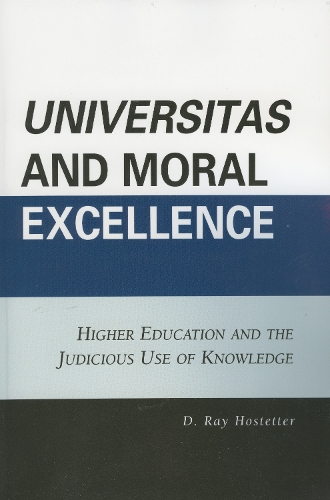
Universitas and Moral Excellence: Higher Education and the Judicious Use of Knowledge
(Paperback)
Publishing Details
Universitas and Moral Excellence: Higher Education and the Judicious Use of Knowledge
By (Author) Ray D. Hostetter
University Press of America
University Press of America
15th January 2007
United States
Classifications
General
Non Fiction
Higher education, tertiary education
378
Physical Properties
Paperback
268
Width 156mm, Height 235mm, Spine 23mm
390g
Description
This work was born out of a concern that the advancement of society's underlying moral strength is becoming increasingly weaker. Due to this deficiency, there is a call to educators, particularly at the college and university levels, to give careful and collective attention to the three groundings that are consonant with well-functioning societies-morality, rationality, and personal responsibility.
The book discusses the universitas model (the historic function of an advanced academic community) as a reference for dialogue and reasoning in the pursuit of moral excellence. Dr. Hostetter articulates that higher educational institutions should seek to understand and restore this model with the ultimate aim of formulating a meaningful institutional worldview. Denoting "entirety" and signifying "all together," universitas requires that a high measure of solidarity should be demonstrated. The work outlines potential steps and essential aspects of the universitas idea that institutions might consider useful.
An overarching goal of universitas is examined under the rubric, "the judicious use of knowledge." This implies the necessity that collective stands regarding key values be taken. A basic premise is that colleges and universities should devote mindful attention to discerning "the highest good" as well as the "supportive goods" that are required to achieve "the highest good" for all. Examples of possible institutionally discerned "goods" are reviewed in several chapters according to religious, ideological, and institutionally unique categories.
Author Bio
Dr. D. Ray Hostetter, Ph. D. served as president of Messiah College from 1964 to 1994. A founding board member of both the National Association of Independent Colleges and Universities and the Council for Christian Colleges and Universities, he received his Ed. D from Columbia University. He currently resides with his wife, Audrey, in Sanibel, Florida and Joseph, Oregon.
